Turkey farming means ‘raising these birds for their meat, eggs or feathers‘. It is not a traditional business and many people are doing this from the ancient time. It is a very easy business and even the beginners can also start this business easily.
Actually, commercial turkey farming is a profitable business idea. Turkeys grow faster like broiler chickens and become suitable for marketing purpose within a very short time.
Turkey farming for meat production is more popular than egg production from turkey. Although some people keep one or several toms (a mature male turkey) as pet.
Caring and other management for turkeys are just like many other common poultry birds. But the main difference is the size of turkeys. They are relatively larger poultry birds, as compared to chickens, quails, ducks and similar birds.
Today, commercial turkey farming is a very popular business. And it’s popularity is increasing gradually. So, it can be a good business for you for making profits. Commercial turkey farming is even gaining popularity in many Asian countries. And it can be a good business for the beginner poultry farmers.
What are the Advantages of Turkey Farming Business?
Commercial turkey farming business has many advantages. That’s why many new and existing poultry farmers are planning to start this business. Many people are trying to start this business for making profits. Here we are trying to describe more about the top advantages of turkey farming business.
- Commercial turkey farming is a very profitable business. And you can take this opportunity for making profits.
- Raising turkeys is relatively easy. It’s just like raising other poultry birds such as chickens, ducks etc.
- It’s not a new business, and many people are already doing this. So, you don’t have to worry much about this business.
- If you have backyard or vacant land, then you can start this business easily for utilizing your space.
- Commercial turkey production is very profitable, and it has high return of investment ratio.
- You will get your invested money back within a short period of time.
- Caring the turkey birds is relatively easy, so you will probably be able to raise these birds even if you are a beginner.
- Turkeys are just like other domestic poultry birds. And you don’t need to have any license for raising turkeys.
- Turkey products, especially meat is very popular throughout the world. So, you don’t have to worry much about marketing your products.
- Commercial turkey farming is a good and profitable business. So, it can be a good business for the educated but unemployed young people.
- You can also start a small scale production and utilize your family labor.
- You can apply for bank loan if you want to start in large scale.
- Turkey meat and eggs are very nutritious. And you can enjoy fresh eggs or meat if you start your own turkey farming business.
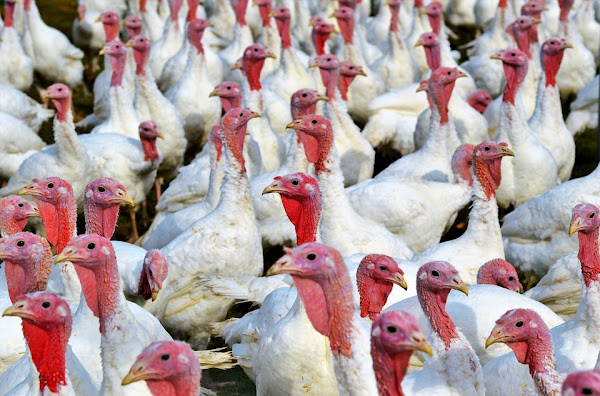
How To Start Turkey Farming Business?
Turkey farming is similar to other poultry farming business like chickens, ducks, quails etc. Turkeys are also very social with humans and raising turkeys is really very fun and enjoyable. It’s really very easy to start commercial turkey farming business. Here we are trying to describe more information for starting commercial turkey farming business.
Step 1: Learn Practically and Complete Training
First of all, we will recommend you to learn practically about this business from any existing turkey farms. You can also complete short training about raising turkeys. Try to visit as many farms as you can before starting your business.
Step 2: Make An Effective Business Plan
Making an effective turkey farming business plan is very important for starting and operating a successful production. Try to include everything in your business plan from starting to marketing. And work according to the plan. You can ask for help from an expert for making the business plan, especially if you are a beginner.
Step 3: Select a Good Location
Selecting a good location is very important for starting and operating a commercial turkey farming business. You can also use your existing land if it fulfill the following criteria.
- Try to select the land far from residential areas.
- Ensure good water source.
- Ensure the availability of electricity.
- Good transportation system is a must.
- Try to select a calm and pollution free place.
Step 4: Determine the Products
Before starting, try to determine the products you want to produce from your farm. You can can produce either meat or eggs from your farm.
Step 5: Determine Your Turkey Farming Methods
Turkeys can be raised in many different methods. Most common and popular turkey farming methods are:
Free-range: In free-range system, the turkeys are raised in outdoor areas. In this system, they generally have more space and less confinement. They may have a diet supplemented with foraged food, and the uses of antibiotics and hormones are limited. The free-range turkeys tend to be more expensive due to space and care requirements.
Intensive Farming: In this system, the turkeys are generally raised indoors with limited outdoor access. They are kept in controlled environment with constant access to water and feed. Antibiotics and hormones my be used, and they are primarily fed commercial feed for rapid growth.
Organic Turkey Farming: Organic method produces the best quality and most expensive products. In this system, the turkeys have have access to outdoor spaces with strict guidelines. Use of antibiotics is limited and no hormones used. They are generally fed organic, pesticide-free and non-GMO feed.
Step 6: Choose Turkey Breeds
There are several turkey breeds available around the globe. But all those breeds are not suitable enough for commercial meat or eggs production. You can raise only a few of these breeds in your farm for profitable meat or eggs production purpose. For profitable meat production purpose, you have to use some modern turkey breeds that are raised for commercial meat or eggs production.
Turkey breeds used in commercial production have a maximum feed to meat conversion rate. They consume less food and convert their feeds to meat within a very short time.
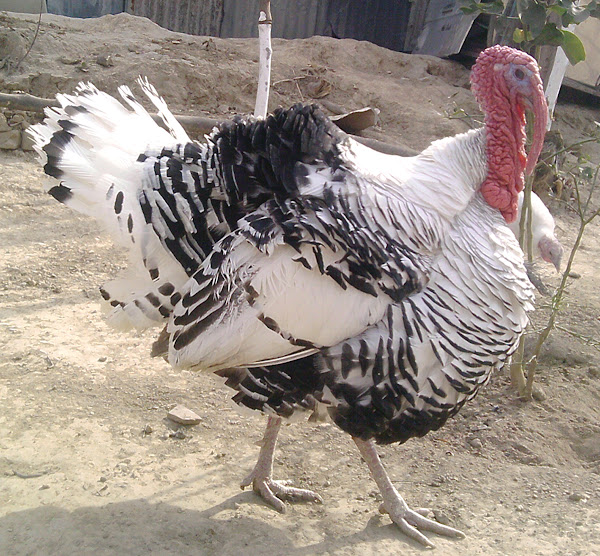
Broad-breasted White is such a modern turkey breed for commercial meat production. Meat produced by this breed on pasture on a small farm, will be more tasty and flavorful than the meat produced from commercial farm. White Holland and Standard Bronze are other two popular meat producing turkey breed. This two breeds are not actual breed.
Broad-Breasted Bronze and Whites are just non-standardized commercial strain used for meat production (they are not actual breed). Along with these, there are also some other breeds available that are beautiful and different looking birds. Bourbon Reds, Narragansetts, Royal Palm etc. are such turkey breed.
For commercial meat production, you should go with Broad-Breasted Whites, Standard Bronze and White, White Hollands etc.
Step 7: Arrange Good Housing and Fencing
Good housing with all types of essential facilities available is very necessary for commercial turkey production. So, try to make a good and secure housing system for your birds and ensure the availability of all necessary facilities.
And in the case of fencing, try to make the fence as high as possible. Turkeys are large in size and become very strong. So, the fencing must have to be strong enough to protect these birds.
You can use electric poultry netting, woven wire fencing, metal T-posts or wooden posts. However, keep in mind the following criteria while making housing and fencing for turkeys, .
- You must have to ensure proper protection from all types of predators and harmful animals.
- Ensure availability of sufficient space inside the house. Generally, 75 feet * 75 feet space is suitable for accommodating for up to 12 birds.
- Never let the turkeys to graze in the pasture until they reach grazing age.
- Using wooden litter is very effective for turkey farming.
- Ensure sufficient flow of fresh air and light inside the house.
- Make proper ventilation system.
- Make the house suitable enough for cleaning it regularly.
- In case of fencing, make it as high as possible. The fencing must have to be at least four feet above the ground.
- The turkeys are very strong and bigger in size than other poultry birds. So, make the fencing with strong materials.
Step 8: Ensure Nutritious Feeding
Good and nutritious food keeps the bird healthy and productive. So, it will be better if you learn how to feed the turkey birds (and this will help you to prevent problems in turkey farming and reducing feeding costs). Turkey birds need more protein in their food for first few weeks than other domestic birds. The protein in turkey feed should be at least 28 percent.
You can go with chick starter which contain about 28 percent of protein. Feed the turkey, chick starter for first six weeks and after that period you can feed them grower feed. Grower feed should contain about 20 percent protein. The amount of protein in turkey feed is higher than chickens or other poultry bird’s feed.
Along with providing nutritious food, always try to serve them sufficient amount of fresh and clean water. Generally, 2 gallons of fresh water is necessary for one dozen of turkey birds.
Step 9: Proper Caring and Other Management
Taking good care of the birds is very important. Always try to keep your birds in healthy environment and learn more about turkey caring and how to prevent health problems.
Provide them with good shelter/housing system. And always try to clean their house on a regular basis. Ensure enough light and install good ventilation system.
Never feed your birds contaminated or outdated food. Always provide them clean and fresh water. Keep sufficient space inside the house. And lastly, take good care of your birds.
Step 10: Learn About Their Diseases and Treatment
Turkeys are relatively strong birds. They generally get affected by diseases or other health problems less than other poultry birds. But you should learn more about turkey diseases and take necessary steps.
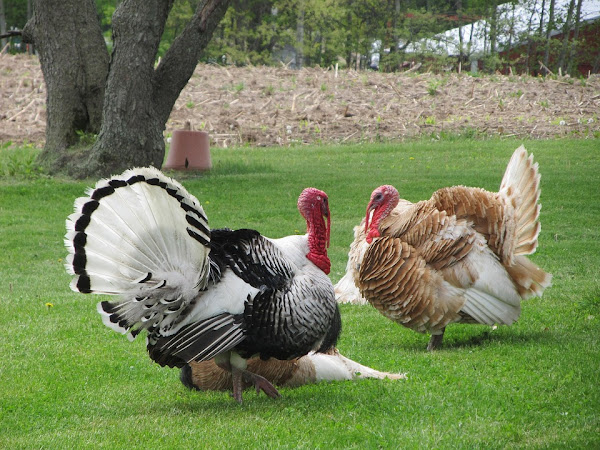
Step 11: Marketing
In commercial turkey farming, the birds become suitable for marketing within 12 to 20 weeks. Marketing turkey products is very easy. Because these products have very good demand and value in the market. Hope you will be able to easily sell your products.
These are the common steps and ways for starting and operating a successful turkey farming business. Its really very easy and the beginners can also start raising them. Hope this guide has helped you! Good luck and may God bless you!
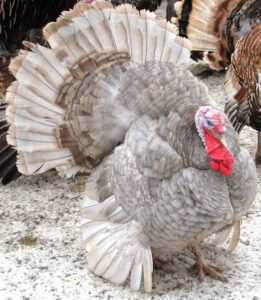
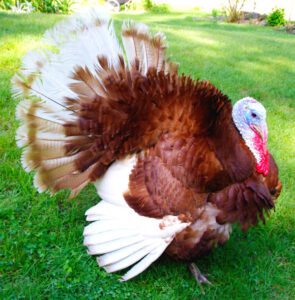
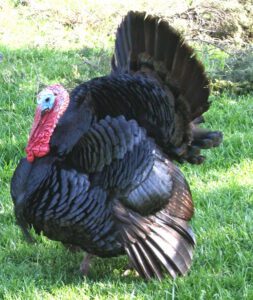
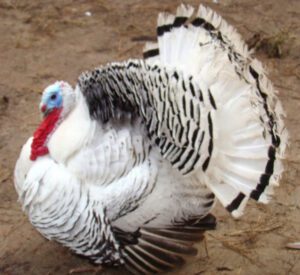
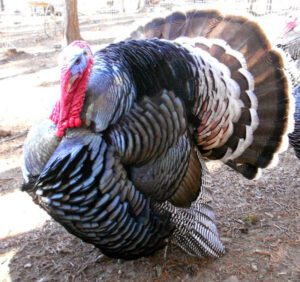
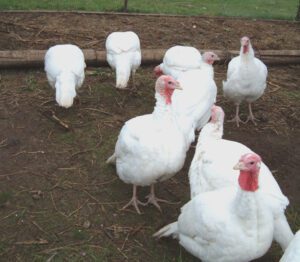
Very informative overview. Is there a place that builds on what you have discussed. Are there ways to connect to other turkey farmers. We justbm8ved onto a farm, we planned to raise chickens for eggs and also get some meat chickens for meat. But we wonder if turkeys would be better. I’d love to see sn active farm raising turkeys. I really appreciated your article it was informative, discussing differences in the breeds, and other insights in suitability… thank you so much!
Good day
i am looking for day old broad breast white turkey for breeding/ Parent stock and production
kindly. let me know if you can avail.
regards
Annah
for Tsalachturkeyfarm
Actually i want start turkey farming and others farming but im afraid of how i take care of it but i think it will better for me to find where i will disscus wth you please
I am interested in this turkey business. I am preparing cage to start so I will be asking more questions about business . Thank you.
Do you have some places providing (supplying) hybrid Turkeys?
I like to eat Turkey meat now i think of starting to raise them in Gauteng South Africa.Where can i learn to raise and farm them in Gauteng ,where can i buy small ones to raise?
Larmac
Email: [email protected]
Good document
Informative. Where do we get turkey poults in /around Polokwane?
We are not able to tell you the exact location from where you can get the poults. You can contact with your local poultry chick suppliers or breeders. Thanks!